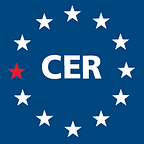Does the Italian Constitutional Court ruling improve the Five Star Movement’s chances?
On Wednesday, Italy’s constitutional court ruled on the country’s electoral law for the Chamber of Deputies, Italy’s lower house. The ruling paves the way for early elections. Centrists in Italy and elsewhere in the EU fear that the Five Star Movement might win, plunging Italy into crisis. This has become easier to imagine, but remains relatively unlikely.
Following the rejection of Renzi’s reforms in December, Italy’s electoral system was broken: the lower house had a first-past-the-post system, while the Senate was elected with proportional representation — producing different results in each house. The Court’s ruling aligns the two systems, making early elections possible. The ruling struck down parts of the existing law for the Chamber of Deputies, Italy’s lower house, removing the run-off between the two largest parties. What is left is a broadly proportional system for both houses.
Early elections may be held as early as May or June — although trying to iron out small differences in the electoral laws, as Italy’s president has suggested, could delay elections until September. Matteo Renzi, along with two populist opposition parties, the Five Star Movement and the Northern League, is calling for early elections. But large parts of Renzi’s ruling centre-left Democratic Party (PD) are opposed, as are centrist parties, while the position of Silvio Berlusconi’s Forza Italia is still unclear.
If early elections are held according to the rules of the court’s revised electoral system, they are unlikely to lead to an outright winner. Recent polls suggest that the PD is still Italy’s largest party, with around 30 per cent of the vote. The Five Star Movement is hovering just below 30 per cent, slightly down from its peak last year as a result of the scandals that have dogged the Five Star mayor of Rome. Berlusconi’s Forza Italia is polling at 13 per cent, as is the Northern League. Thus a coalition is likely, which would probably be between the PD, small centrist parties, and Forza Italia. The only way for Five Star to form a government would be to enter into a loose coalition with the Northern League, and Brothers of Italy, a small, right-wing and eurosceptic party. Such a coalition has become easier to imagine in the past few months: the parties have drawn closer, and the Five Star’s categorical rejection of alliances seems weaker after its attempt to join ALDE in the European Parliament. Nevertheless, current polling suggests such a coalition would not have enough seats to govern.
In all, there are still significant obstacles to the Five Star Movement being able to form a government. To govern, they and their potential allies would need to significantly boost their vote share from its current level. But their chances could be raised if eurosceptic forces perform well in the Dutch and French elections.
Luigi Scazzieri
Clara Marina O’Donnell Fellow, CER
